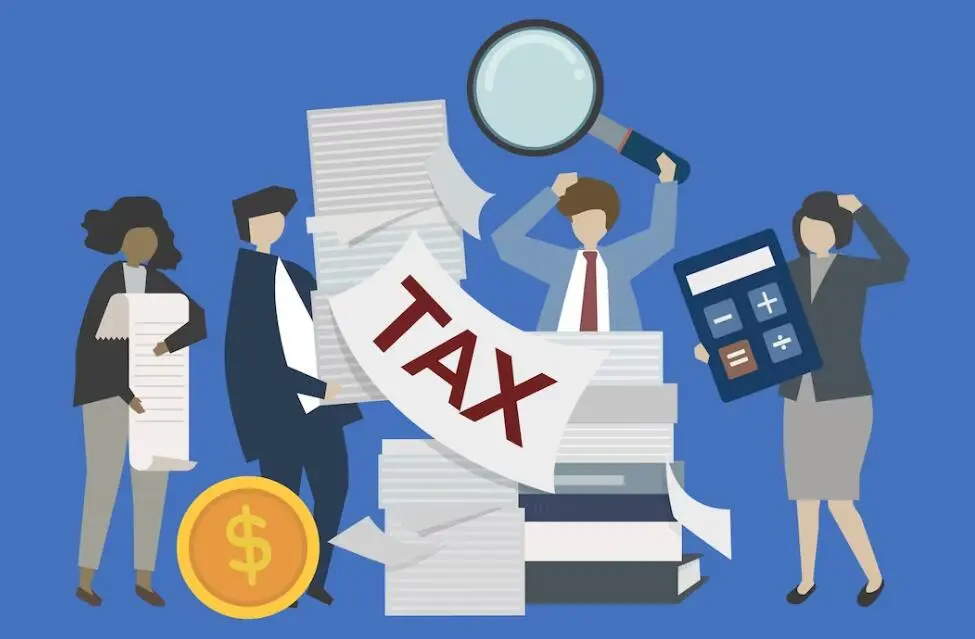In an age where financial landscapes are characterized by their intricacy, the importance of accurate tax knowledge cannot be overstated. With the rise of online platforms, trainers now have a plethora of tools at their disposal to assess, refine, and enhance an individual’s grasp on tax concepts. But what are the most effective online assessment strategies in this realm?
Table of content
- Part 1: 5 Online Tax Knowledge Assessment Ideas
- Part 2: OnlineExamMaker: A Free Interactive Online Quiz Platform for Tax Knowledge Assessments
- Part 3: How to Create a Tax Knowledge Assessment with OnlineExamMaker?
The Need for Online Tax Knowledge Assessments

Each year, tax regulations evolve, reflecting the dynamic nature of the global economy. Whether it’s a new international tax treaty or changes in local deductions, professionals need to stay abreast of these shifts. As such, trainers play a pivotal role in ensuring that tax professionals are equipped with up-to-date knowledge. The online space, with its flexibility and adaptability, offers the perfect platform for such assessments.
5 Online Tax Knowledge Assessment Ideas
1. Scenario-Based Simulations:
Instead of relying on rote memorization, trainers can craft assessments that mirror real-world tax scenarios. For instance, a simulation might present tax complications faced by a multinational corporation with operations in various jurisdictions. Such a design not only tests theoretical knowledge but also the practical application, emphasizing a deep understanding of tax regulations and their implications.
2. Interactive Quizzes with Case Studies:

Marrying theoretical questions with real-life tax cases can provide a comprehensive assessment experience. For instance, an interactive online tax quiz might incorporate a landmark tax evasion case, asking participants to identify the breaches, understand the legal interpretations, and recommend rectifications. Such an approach ensures a holistic understanding of tax law nuances.
3. Gamified Tax Challenges:
Learning needn’t be monotonous. With gamification, trainers can craft engaging tax-related challenges where participants earn points or progress through levels by answering correctly. This interactive approach, while fun, can also be instrumental in reinforcing tax concepts and ensuring they resonate.
4. Video Analysis Assessments:
The power of visual storytelling is undeniable. Trainers can utilize videos depicting various tax scenarios. After viewing, participants might be quizzed on the tax implications showcased, the laws at play, and potential solutions. Such an approach tests not just memory but also the analytical and interpretative prowess of the participant.
5. Group Discussions & Peer Evaluations:
Taxation is often about perspective. Encouraging group discussions on intricate tax matters can provide insights into an individual’s understanding, analytical skills, and ability to communicate complex ideas. By having participants evaluate each other, trainers can also foster a sense of collective learning and collaborative problem-solving.
Just to let you know
Sign up for a free OnlineExamMaker account to create an interactive online quiz in minutes – automatic grading & mobile friendly.
Tips for Effective Online Tax Knowledge Assessment
1. Stay Updated with Tax Laws:
Tax laws are not static. As such, assessment materials should be updated regularly to reflect the latest changes, ensuring that participants are always tested on current regulations.
2. Ensure Diverse Scenario Representation:
The world of taxation is vast. From freelance individuals to large conglomerates, trainers should ensure that their assessments cater to a diverse set of scenarios, making them universally applicable.
3. Provide Instant Feedback:
Learning is as much about understanding mistakes as it is about reinforcement. Instant feedback mechanisms can offer participants insights into areas of improvement, fortifying their knowledge base.
4. Use Multimedia:
Different people have different learning styles. By incorporating various formats—be it text, videos, or interactive simulations—trainers can cater to a broader audience, ensuring comprehensive understanding.
5. Prioritize Data Security:
Tax matters are sensitive. Any online platform or tool used should adhere to the highest standards of data privacy and security, ensuring the protection of both participants and the entities they might discuss.
The Future of Online Tax Knowledge Assessments
As technology continues its relentless march forward, the realm of online assessments will undoubtedly see innovations. Artificial Intelligence and machine learning could pave the way for personalized assessment experiences, tailoring questions based on a participant’s proficiency level. Additionally, virtual reality might offer immersive tax scenarios, pushing the boundaries of practical application assessments.
OnlineExamMaker: A Free Interactive Online Quiz Platform for Tax Knowledge Assessments
OnlineExamMaker’s secure, powerful web-based quiz maker is an easy-to-use, intelligent online testing software tool for tax educator to create tax knowledge assessments with ease. With its user friendly interface and extensive range of features, OnlineExamMaker simplifies the process of creation and distributing online quizzes to engage learners, improve knowledge retention, and assess performance.
Key Features
Quiz on Mobile: Take an online exam on any devices, including mobile phone, tablet, laptop, desktop. Support users to scran a QR code to enter the online exam.
Multiple question types: Choose from various question types, including multiple choice, match, true or false, fill in the blanks, subjective, and a lot more.
Lockdown Browser: The lockdown browser will enforce users to move into fullscreen mode before starting the test. The lockdown browser is to prevent the user from opening other windows, tabs, search engines, or software during the test.
Create Your Next Quiz/Exam with OnlineExamMaker
How to Create a Tax Knowledge Assessment with OnlineExamMaker?
Step 1: Go to OnlineExamMaker website.
Step 2: Prepare your tax quiz questions, then upload to OnlineExamMaker question bank.
Step 3: Create an assessment, then edit its information, add questions, and set assessment settings.
Step 4: Publish and distribute your tax assessment.
As the adage goes, “In this world, nothing can be said to be certain, except death and taxes.” Given the certitude of taxes, it’s imperative that professionals are equipped with the latest knowledge. Online assessments, with their blend of flexibility and innovation, offer trainers a robust platform to ensure this. As we advance, it’s upon trainers to harness these tools effectively, crafting assessments that are not just tests but valuable learning experiences in themselves.